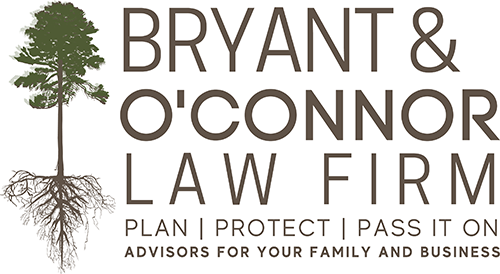Are you one of the many people who aren’t sure what a residential real estate attorney does besides review a bunch of papers? No worries, but I hope I can add a little depth to the understanding of a closing attorney’s responsibilities. While many people associate real estate lawyers solely with handling documents at the closing table, their responsibilities in residential transactions reach far beyond. In Georgia, where attorneys must supervise the entire closing process, understanding the multifaceted role of real estate lawyers is essential in choosing someone who will handle the transaction diligently. Note that commercial closings present a different set of issues and complexities, which we will address in future discussions. Here’s a look at what real estate lawyers do in residential property transactions in Georgia:
- Pre-Closing Preparations for Residential Transactions
Before closing on a residential property, real estate lawyers conduct critical due diligence, including:
- Title Examination: Analyzing title records to uncover any defects, liens, or encumbrances that could affect the sale. Real estate titles are not like a physical motor vehicle title, but instead consist of a set of records covering at least 50 years that must be abstracted and deciphered.
- Legal Description and Survey Review: Reviewing legal descriptions and land surveys to detect potential issues or ambiguities that may require a new survey or curative actions.
- Contract Negotiation and Drafting: Crafting and negotiating residential agreements in line with the client’s needs and legal compliance. In transactions with realtors, the contract may already be in place when the attorney gets involved, but there are often additional agreements related to closings that need to be drafted.
- Coordination with Other Professionals: Collaborating with realtors, lenders, appraisers, and other stakeholders for a smooth process.
- Solving Problems: Some attorneys are good at spotting title problems, but what you really want is someone who does what they can to find solutions to title problems, if possible, to help get the deal to closing.
- Creating an Accurate Settlement Statement: Along with title work, the closing attorney’s other biggest responsibility is ensuring that the appropriate disbursements are made in conformance with the real estate contract and any lender’s loan requirements. All of the money goes through the attorney’s trust account, and the attorney’s accounting must be perfect.
- The Residential Closing Process
The residential closing is a culmination of intricate legal steps, and real estate lawyers in Georgia must act as a gatekeeper, making them responsible for the following:
- Handling Escrow Services: Overseeing the deposit and disbursement of funds according to contract terms. This requires that the closing attorney ensure that all funds necessary to make necessary disbursements (to the seller, seller’s mortgage payoff, realtors, taxes, etc.) are deposited into their trust account prior to closing, and then after closing all funds are accurately distributed. Messing up on this part, trust account management, is probably the most common way attorneys get in trouble.
- Supervising the Closing: Ensuring proper execution of all documents and managing the funds’ disbursement, including paying off any mortgage or lien that is necessary to insure good title to the purchaser.
- Reviewing and Explaining Documents: Clarifying legal documents’ contents, guaranteeing that the parties comprehend their obligations and rights.
- Compliance with Lender Requirements: In financed transactions, the closing attorney is almost always required to represent the lender and ensure that all of the lender’s instructions are satisfied. Most lenders have a “closer” who must approve the closing attorney’s work before a purchase closes.
- Post-Closing Assistance in Residential Transactions
The lawyer’s role continues after the closing, with tasks such as:
- Recording Documents: Recording deeds and other required documents, like a deed to secure debt, with the correct county superior court clerk’s office. Failure to properly record documents will lead to disasters.
- Issuing Title Insurance Policies: In most transactions, the lender and purchaser each obtain title insurance policies, and the closing attorney is responsible for confirming that all issues raised in the original title commitment have been satisfied, such as payoffs, deed and security deed executions, recordings, etc. Only after these items are confirmed can the closing attorney issue the final policy.
- Ongoing Residential Consultation and Legal Advice: This is not actually required, but ideally, if you picked the right real estate lawyer, they will provide you with ongoing support outside of the real estate closing. For example, our firm provides estate planning, probate representation, small business and other services. If it’s not something we handle, we may be able to refer you to a good resource.
Conclusion
In Georgia’s residential real estate landscape, lawyers play a vital, multifaceted role that extends well beyond reviewing documents with the parties at the closing table, although that might be the part the parties see. From initial title examination and escrow services to post-closing services and continuous legal counsel, a competent closing attorney ensures real estate transactions don’t turn into disasters.
At Bryant & O’Connor Law Firm, we take residential real estate closings seriously because the home is often a family’s biggest asset, and home-owning families are our ideal clients. In addition to residential closings, we also handle commercial closings, which come with a whole different set of issues. Stay tuned for a future discussion on this subject.
For inquiries about residential real estate transactions in Georgia or professional assistance, don’t hesitate to contact us at Bryant & O’Connor Law Firm. Our experienced team is here to guide you through every stage of your residential real estate journey.
—
Disclaimer: This blog post provides general insights and does not constitute legal advice. Always consult a qualified real estate attorney for personalized guidance tailored to your specific situation.

